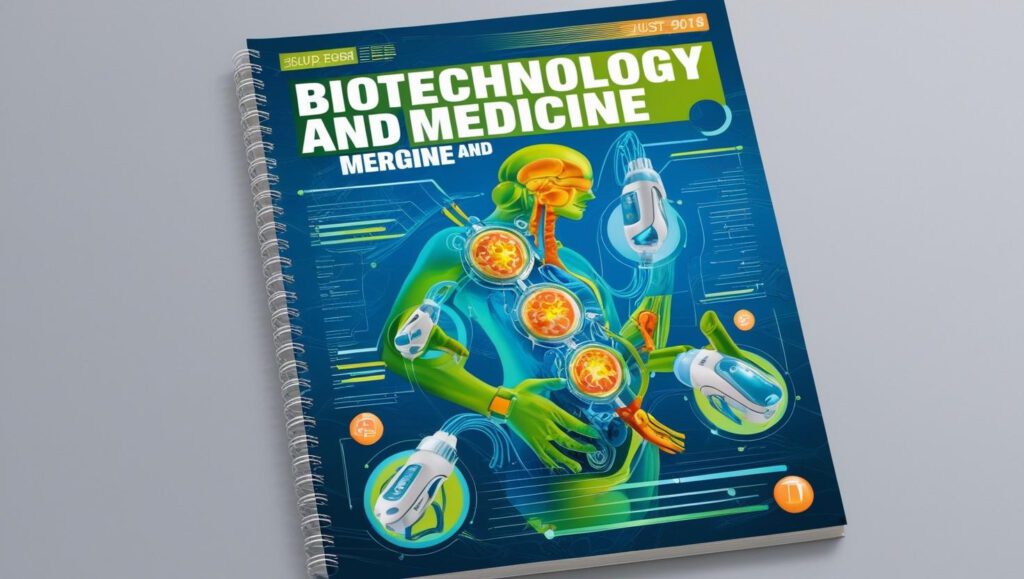The integration of biotechnology and technology is driving revolutionary changes in healthcare, making it one of the most exciting fields to watch in 2025 and beyond. These innovations are improving patient outcomes, reducing costs, and pushing the boundaries of what is possible in medicine. Below, we explore the top 10 biotech innovations merging medicine and technology, showcasing their impact and potential.
1. AI-Powered Drug Discovery
Artificial Intelligence (AI) is transforming drug discovery by analyzing vast datasets to identify potential drug candidates faster and at a lower cost.
Impact: Reduces time-to-market for life-saving drugs and enables personalized medicine.
Learn More: AI in Drug Discovery
2. CRISPR-Based Gene Editing
CRISPR technology is advancing gene therapy by allowing precise edits to DNA, offering solutions for genetic disorders previously considered incurable.
Impact: Potential cures for diseases like sickle cell anemia, cystic fibrosis, and certain cancers.
Learn More: What is CRISPR?
3. Wearable Biosensors
Wearable devices equipped with biosensors can continuously monitor health metrics like blood glucose, heart rate, and oxygen levels, providing real-time data for patients and doctors.
Impact: Enables proactive healthcare and remote patient monitoring.
Learn More: The Future of Biosensors
4. mRNA Technology Expansion
Following the success of mRNA vaccines for COVID-19, researchers are exploring mRNA-based treatments for cancers, autoimmune diseases, and more.
Impact: Opens up new possibilities for precision medicine and immunotherapy.
Learn More: mRNA Therapeutics
5. 3D Bioprinting
3D bioprinting is being used to create tissues and organs, offering hope for transplantation and drug testing without human trials.
Impact: Revolutionizes organ transplants and reduces dependence on donors.
Learn More: How 3D Bioprinting Works
6. Digital Twins in Healthcare
Digital twin technology creates virtual models of patients to simulate and predict health outcomes, enabling more effective treatments.
Impact: Enhances personalized medicine and reduces trial-and-error in treatment plans.
Learn More: Digital Twins in Healthcare
7. Nanotechnology in Drug Delivery
Nanotechnology is enabling targeted drug delivery, ensuring that medications reach the exact cells or tissues where they’re needed.
Impact: Reduces side effects and increases drug efficacy.
Learn More: Nanotechnology in Medicine
8. Telemedicine and Remote Diagnostics
Telemedicine platforms combined with advanced diagnostic tools are providing access to healthcare for remote and underserved communities.
Impact: Reduces healthcare disparities and improves early detection rates.
Learn More: Telemedicine Growth
9. Synthetic Biology
Synthetic biology involves designing and creating new biological parts and systems, enabling applications like lab-grown meat and engineered probiotics.
Impact: Advances food security, environmental sustainability, and novel medical treatments.
Learn More: What is Synthetic Biology?
10. Blockchain for Healthcare Data
Blockchain technology is enhancing data security, enabling transparent and tamper-proof sharing of healthcare records.
Impact: Builds trust in patient data management and facilitates interoperability.
Learn More: Blockchain in Healthcare
Conclusion
These biotech innovations are revolutionizing medicine by merging cutting-edge technology with biological advancements. From AI-powered drug discovery to blockchain for secure healthcare data, these breakthroughs are paving the way for a healthier, more efficient future. Stay informed about these trends to better understand the dynamic intersection of medicine and technology.
Start exploring these innovations and their potential impact today!


